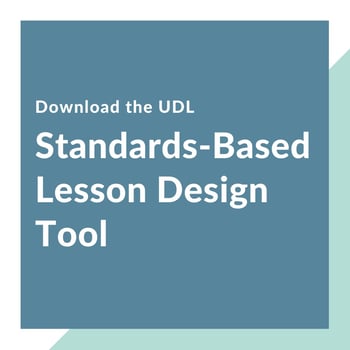We must begin with the end in mind.
This is probably the single most recognizable Stephen Covey-ism there is; because it’s true. It is true for life and it is true for UDL.
In order to effectively universally design learning that develops expert learning, it is critical to begin with a firm learning goal. But not just any goal will do. They need to be aligned with your grade level standards. And, even more importantly, they need to be a specific type of learning goal. Let me see if I can explain.
If you have been around basketball at all, then you likely have heard of the Wizard of Westwood, the late great John Wooden. John Wooden is arguably the greatest basketball coach of all time. As the coach of the UCLA Bruins, he won ten National Collegiate Athletic Association (NCAA) national championships including a record seven in a row. But what made John Wooden truly great was not all of the wins. You see, for John Wooden basketball was really just a means for teaching his players about life.
John always taught the game of basketball to his players with an eye on building a deep understanding of the concepts and how they applied outside of the game. Take the skill of “getting open” in basketball. Many coaches teach their players to v-cut or set screens in order to get open. They practice the skill until it is proficiently demonstrated, and that’s that. John Wooden, though, would take it to the next level and ensure that his players understood the concept of creating space in the game of basketball, recognizing that “space” allows a player to have more time and control in order to make an effective basketball move in order to score. Following this, you can imagine Coach Wooden sitting his players down at the end of practice in order to “transfer” the concept of creating space in their personal lives, “Now gentlemen, when you go about your business in the world, there may be a time when you are getting into a heated situation – an argument with folks or a fracas in your dormitory. When this occurs remember to give yourself some space so that you have more time and more control to make an effective life decision. Back up and take a few breaths. We learn this game not just to win on the court, but to win in life.”
You see, John Wooden taught his players transferable concepts. If you are familiar with the CAST UDL Guidelines, you would find this little gem hiding down at the bottom of the Multiple Means of Representation column: Maximize transfer and generalization.
As teachers and coaches, we should always be connecting knowledge and skills to the larger concept in our learning goals. This is how we end up with big ideas to explore, phenomena to discuss, and skills that are relevant and meaningful.
But, we also need to be careful. We don’t want to create learning goals that are too restrictive. If we create learning goals that include conceptual learning targets tied to specific content targets that can only be demonstrated with a specific skill, then we lose some of our ability to be flexible with our means of teaching and learning. The most flexible learning goals will be solely focused on developing conceptual understanding. Conceptual learning targets allow us to consider all of the possible content to support understanding and all of the possible ways to demonstrate that understanding.
Once we have a firm, grade-level, concept-based learning goal in place, then we can effectively plan backwards thinking about the strengths and challenges of our students, the supports and scaffolds they may need, the materials that would be accessible and relevant, the tools and resources to support processing, and the flexible ways that they could demonstrate proficiency. Better yet, we can engage our students in co-developing options for learning and demonstrating learning.
When you consider the CAST UDL Practices of Expert Learners, you will see how essential it is to begin with firm, grade-level, concept-based learning goals. 
John Wooden didn’t become the Wizard of Westwood without effort. He was a student of the game and of the craft of coaching. We don’t expect you to suddenly become UDL Wizards in your classrooms overnight. To help you get started though, we have created a tool that might help you think about how to write expert learning goals to drive flexible learning options to support expert learning in your classroom.
Hopefully, it will help you to begin your planning with a new end in mind!
Dive Deeper Into Expert Learning. Explore the resources below:
- Making Meaning of the High and Lows of Education
- Equality, Equity, and Learner Agency Infographic
- Listen to the Education Table Podcast



